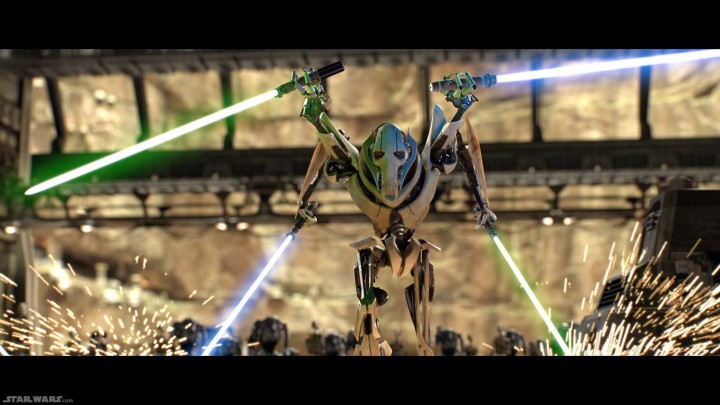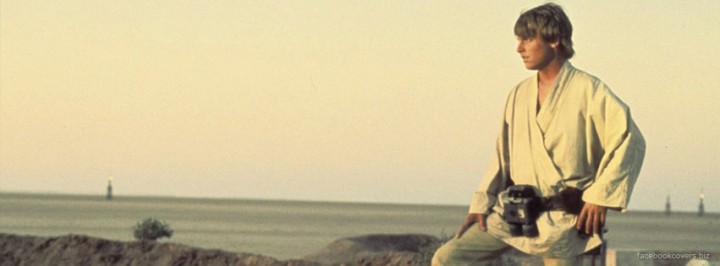Enough time has passed for many fans of the Star Wars universe to swallow the bitter pill that was the trilogy of prequels. And while the late trilogy had its moments – a stellar villain in Phantom Menace, excellently coordinated fight scenes and classic production by John Williams – it’s a disjointed offering to the Star Wars canon at best.
The news that Disney acquired the rights to Star Wars was met with initial skepticism. News that JJ Abrams would officially take on directorial duties brought some legitimacy to next installment. Additional reports indicating the original cast was on board raised a legitimate hypothetical situation – Star Wars VII might actually be pretty good.
So how do you make a good Star Wars movie that fans can be proud of? We have a few suggestions.
Make the Screenplay Matter
The prequel to Star Wars was rampant with static dialogue, eliciting stiff performances that seemingly transpired in a vacuum of any relatable emotion.
Why was the original Star Wars great? Fans could easily relate to the characters – what kid didn’t want to grow up as a cunning smuggler like Han Solo or ruthless mercenary like Boba Fett? You see yourself in these characters.
Michael Arndt (Toy Story 3, Little Miss Sunshine, Brave) is a brilliant selection as screenwriter for Star Wars VII. We have every reason to believe Arndt is capable of building a compelling story driven by rich characters.
His recent credits suggest he can generate the type of script to appease a broad demographic, something missing from installments like The Phantom Menace that were entirely catered to kids. Arndt’s work on Toy Story 3, nominated for an Academy Award, shows making an outstanding movie for children can incorporate complex adult emotions.
Empathy is perhaps the most important element to Star Wars.
Keep the Action Conservative
It may sound sardonic but a good Star Wars movie shouldn’t lean heavily on big action sequences. The lightsaber duels were rampant within episodes I-III, a superfluous foray into CGI that left very little time for meaningful character development.

One need look no further than the original Star Wars for the right balance between action and story. The lightsaber fights may be shorter – even less graceful – but they are no less epic. Conservative is key.
As most people can tell you, the more you do something – be it elongated action sequences or spouting the f-word – the less significance it carries consecutively.
Give Us an Iconic Villain
Want to make a truly captivating Star Wars? Find yourself a timeless villain.
Back in his day, Darth Vader reigned supreme. Revolutionary for his time, this towering shadow of a figure was once the embodiment of evil . From the outfit – right down to the iconic voice, Darth Vader can be found on practically any classic movie villain list worth its salt.
The prequels missed the mark here. A remarkable Darth Maul met an early demise, a flat Count Dooku served a static presence and General Grievous, the chief example of gratuitous Star Wars CGI, was all flash and little substance.
What made Darth Vader so exceptional? Despite how sinister his actions were – obliterating entire planets as an interrogation tactic – there was a level of empathy for the shattered semblance of a man beneath the suit. Star Wars VII needs that same level of mystique & humanity.
Have a Clear Protagonist
What makes Lucas’ series of prequels so particularly disjointing is the lack of any real protagonist. Star Wars VII needs to address this right out of the gate.
Giving fans just the right collective of budding Jedi Knights, feisty princesses and glib tongued smugglers gives fans something to cheer for.
That being said, we sure hope Abram and co. find a way to make these new protagonists his own rather than recycling heavily from the past.
Ignore the Expectations
Star Wars fans are hard to please. It’s little secret the prequels failed to sate the ravenous appetite for engaging content built over the span of nearly two decades. Though episodes I-III are not terrible, they function for many as little more than box office fluff that vaguely resembles the franchise.
Star Wars VII, if it is to succeed, must ignore those lofty expectations that coincide with the immortal moniker. Abrams proved himself capable after his first turn directing the parallel universe Star Trek films, we’re confident he can accomplish the same here.

